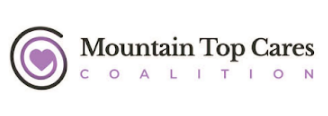By Max Oppen
TANNERSVILLE — On July 29th, my life nearly ended. I overdosed on fentanyl, becoming another statistic in the devastating opioid crisis. I've battled addiction for two decades, sometimes managing to function, other times not. But on that day, I stopped breathing. My addiction, once a manageable demon, almost claimed my life.
My journey with addiction has been long and fraught with ups and downs. I’ve burned many bridges along the way, hurt loved ones, and let many people down.
I returned to college in 2010 at the age of 36, determined to rebuild my life. I spent two years at Columbia Greene Community College and another two at the University at Albany, where I graduated in 2014 with a Bachelor's degree in Journalism and a minor in English. By that time, I had been clean from heroin for five years, thanks to Suboxone—a recovery drug that helped me reclaim a semblance of normalcy.
Suboxone is both a blessing and a curse. It keeps my urges at bay, but it also keeps me tethered to a different kind of dependency. After nearly a decade on Suboxone, I decided to wean myself off this past June. But without the safety net of Suboxone, I fell back into old habits, this time turning to fentanyl.
Finding heroin these days is nearly impossible; fentanyl is prevalent, cheaper, and much more potent. But it's also more dangerous. It's often cut with tranquilizers and other substances, making it a deadly gamble every time. Yet, despite knowing the risks, I began using fentanyl regularly, supplementing it with Xanax and crack to numb the fear and anxiety.
On that fateful day in July, I mixed fentanyl with Xanax—a combination that the medical field universally condemns. I don't remember much from that day; everything went black. I was alone in my home, the keys still in the door. Thankfully, an acquaintance found me in my chair, blue and not breathing. I had previously instructed him to use Narcan if I ever overdosed—a lifesaving nasal spray that blocks the effects of opioids and restores breathing. I had even saved someone else's life with it a few years prior. But instead of using the Narcan (which I had shown him where it was), he and a friend allegedly rifled through my pockets, stealing my drugs, money, and pills.
They claimed to have performed CPR and a sternum rub, but when that didn't work, they resorted to blowing crack smoke into my mouth. Miraculously, that revived me. When I later confronted one of the people involved, she admitted that she had urged my acquaintance to use Narcan, but he dismissed her, claiming I didn't have any. I can only assume that in those moments, he gambled with my life to serve his own needs.
My experience underscores the importance of International Overdose Awareness Day (IOAD), observed annually on August 31st. According to the Centers for Disease Control and Prevention (CDC), IOAD is the world's most extensive campaign to end overdose, a day to remember those lost to drug addiction and to support those left behind. This year, the CDC will release a new report examining the mental health disorders of individuals who died from drug overdoses in 2022.
I'm sharing my story now, fully aware of the potential repercussions. Publicly airing my struggles with addiction might affect my job prospects and evoke mixed reactions from the community and my family. But I believe that honesty is crucial for recovery. My goal with this weekly column is to help others in similar situations, those who are battling addiction and striving to build a life for themselves.
Writing this column is also a cathartic process for me. It's a battle between me and my addiction, which would rather keep these truths hidden, and my desire to recover and help others do the same. However, I'm ready for the fight. This is just the beginning of my journey, and I plan to share more in future installments of "Bruised Fruit."
Mountain Top Cares Coalition is supporting this personal series in The Mountain Eagle to allow me the space to share my story with our community. Mountain Top Cares Coalition (MCC) is dedicated to providing a supported path to recovery from substance use and addiction for the Greene County community. MCC offers free, comprehensive services to ensure that individuals and families can focus fully on their journey to recovery.
Whether you're personally dealing with substance use, supporting a loved one, or simply a concerned community member, MCC is here to help. The coalition offers a range of services, including:
One-on-One Certified Peer Support: Receive individualized support from trained professionals who understand your journey. Learn more about CRPAs (Certified Recovery Peer Advocates) on our website.
Meet-ups and Workshops: Participate in weekly and monthly gatherings that foster connection and learning.
Support Groups: Join specialized groups for families, women, men, LGBTQIA+ young adults, and more, designed to meet the unique needs of each community.
Recovery-Friendly Social Events: Engage in social activities that support a sober lifestyle.
Community Education & Engagement: MCC is committed to raising awareness and providing education on substance use and recovery.
Harm Reduction: Access resources like Narcan to help prevent overdose and save lives.
Recovery Workforce Support: Find assistance whether you're an employee in recovery or an employer looking to create a supportive work environment.
Advocacy: MCC advocates for policies and practices that support recovery on a local and broader scale.
Navigating Social Supports: Get help with essential needs like food, housing, clothing, transportation, and technology access, along with additional recovery and treatment services.
To learn more or get involved, visit www.mountaintopcarescoalition.com. MCC is here for you, your family, and our mountaintop community.
Stay tuned.
Sponsored with Care by:



No comments:
Post a Comment